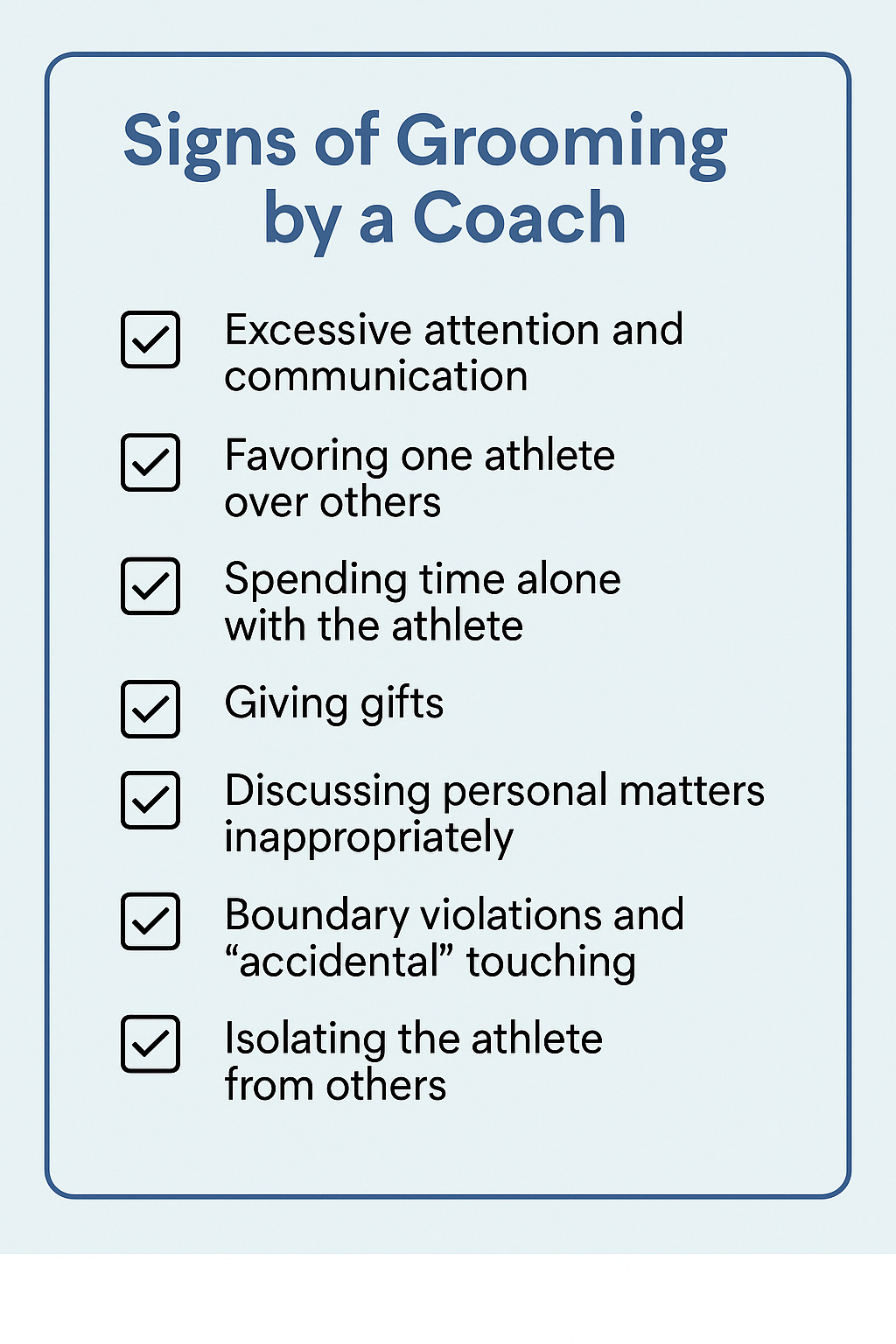When Something Feels Off: Trusting Your Gut as a Sports Parent
“When the signs aren’t easy to see, we have to talk about them.”
This post is a little different from my usual ones. Normally, I share about the ups and downs of raising an athlete -the transitions, the pressures, the identity shifts. But after my last blog, I felt it was important to stay on this topic for a moment longer. Because while it might not be “everyday life” stuff, it’s something every parent - and every athlete - needs to hear.
In my last post, I shared about a coach our family once dealt with. On the surface, he was everything parents dream of: fun, outgoing, made kids feel special, and convinced families that their children needed him to succeed. My son even took part in some of his on-ice sessions when he was younger. We saw it firsthand -and deep down, my husband and I knew something wasn’t right.
And here’s the thing: it’s easy to fall for coaches like that. I’ve done it too. We all want the best for our kids, and when someone promises opportunity, advancement, or special attention, it can be hard to step back and question it.
The Signs of Grooming Parents and Athletes Should Know
The truth is, grooming doesn’t always look scary. In fact, it often looks the opposite: safe, exciting, full of opportunity. That’s what makes it so dangerous.
Here are some red flags every parent and athlete should watch for:
Excessive Praise – Over-the-top compliments, “you’re the best I’ve ever seen.”
Private Meetings – Pulling kids aside or talking to them alone without reason.
Constant Contact – Emails, texts, or calls that go well beyond normal coaching.
Promises of Advancement – “Train with me, and I’ll get you to the next level.”
Charm with Parents – Winning over moms and dads to lower their guard.
Creating Dependency – Making kids feel like they can’t succeed without this coach.
*****Please believe me when I say -these aren’t just hypothetical. They’re patterns that real families, mine included, have experienced.
Why This Matters More Than We Think
When I first started digging into this, I was shocked by the numbers:
Nearly 1 in 5 U.S. college athletes report abusive supervision by coaches - hostile verbal or nonverbal behavior.
About 10.9% of athletes say they’ve experienced unwanted sexual contact or explicit behaviors during their sports involvement.
Over 78% of athletes reported emotional harm or neglect while participating in sports.
Studies estimate 2-8% of all minor athletes experience sexual abuse in sports settings.
And in one study, 5.3% of adolescents who had experienced sexual abuse said the abuser was their coach.
Those numbers aren’t rare. They’re heartbreaking. And they remind me why this conversation matters so much.
Why Parents Sometimes Miss It
It’s easy to wonder, “How could parents not see this?” But the truth is, we all want to believe in the people guiding our kids. Sports are expensive, time-consuming, and emotionally draining. When a coach comes along promising a brighter path - a scholarship, a roster spot, maybe even the NHL - it’s natural to cling to that hope.
I know, because I’ve been there too. My family has lived this. We’ve felt the pull of promises and the charm of someone who “saw potential” in our son.
That’s why I share this - not to judge parents, but to remind us all: safety has to come before sports.
What to Do If You Suspect a Coach Is Grooming
This isn’t an easy topic, but it’s one we can’t ignore. Grooming doesn’t always look scary. It often looks like charm, praise, and promises of opportunity. That’s why it’s so easy to miss.
So what do you do if your gut tells you something isn’t right?
Trust your instincts. Even if you can’t explain it, listen to that voice inside. It’s better to be wrong and protective than to look back wishing you’d acted.
Listen to your child. If they share something, believe them. Thank them for telling you. Reassure them they did nothing wrong.
Pay attention to red flags. Private meetings, constant texts, excessive flattery, promises of advancement, or a coach who makes your child feel they “need” them to succeed.
Take action. If something feels off, speak up. Talk to your club or league. Report to SafeSport or the proper authorities. And never leave your child alone with a coach you don’t fully trust.
At the end of the day, sports are temporary. Our kids’ safety and well-being are forever.
My Hope
This post may feel a little “off track” from my usual writing, but maybe it’s exactly where we need to be. Because if even one parent recognizes a red flag and steps in, it’s worth it.
As parents, our job isn’t to be popular. It’s to protect our kids. Sports are temporary. Their safety and well-being are forever.
** Parents - have you ever had a gut feeling about a coach or mentor that you couldn’t ignore? How did you handle it?
- Alison
Disclaimer: This post reflects my family’s personal experience and perspective, shared in the hope that it helps other parents trust their instincts and protect their kids.


